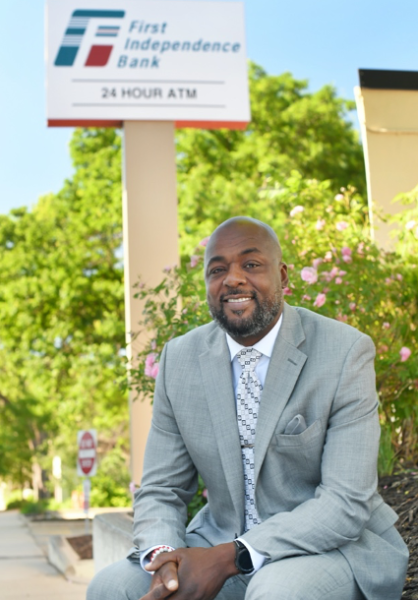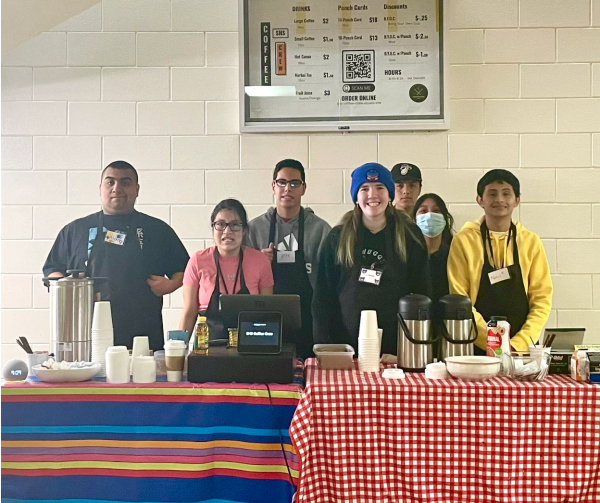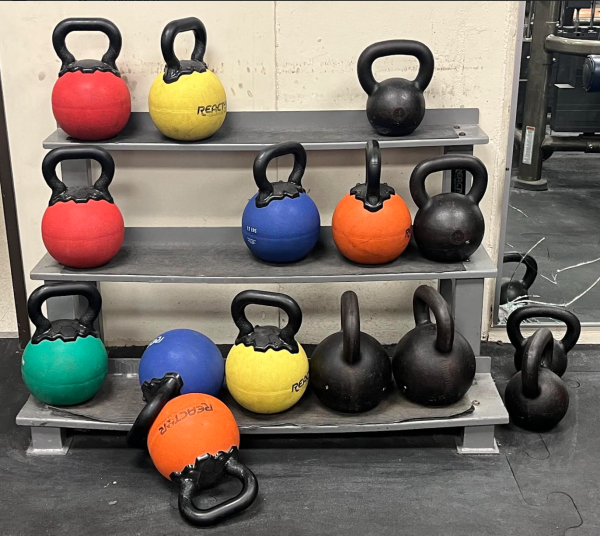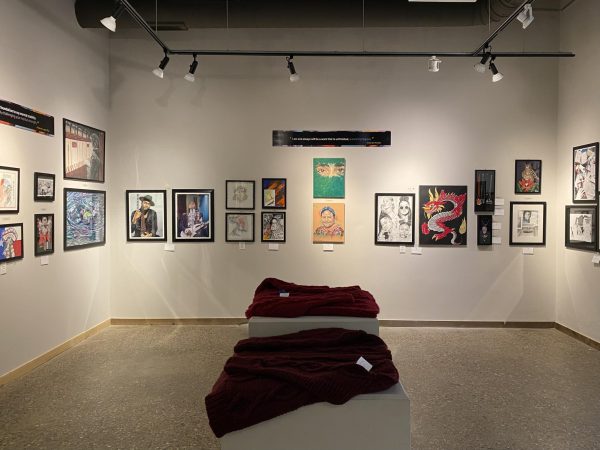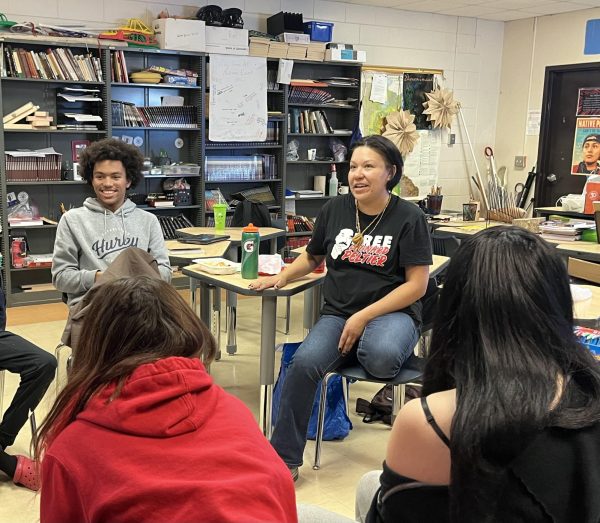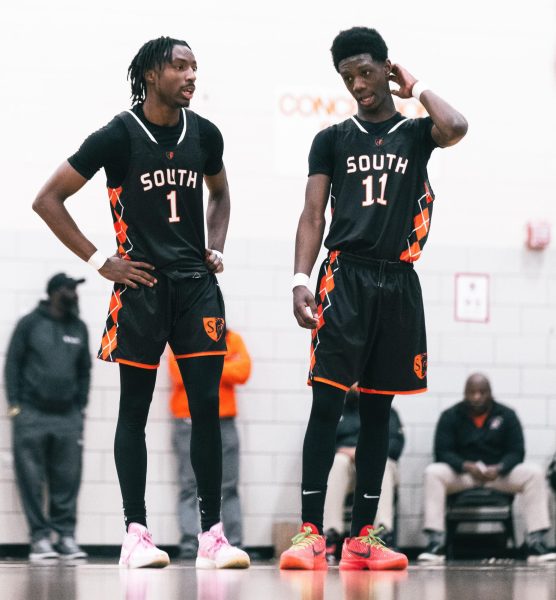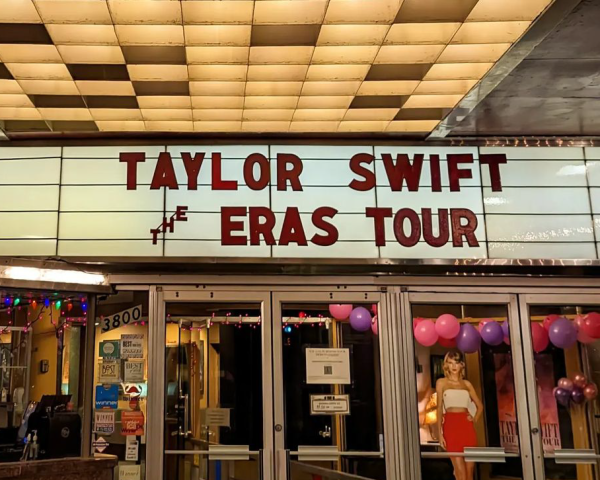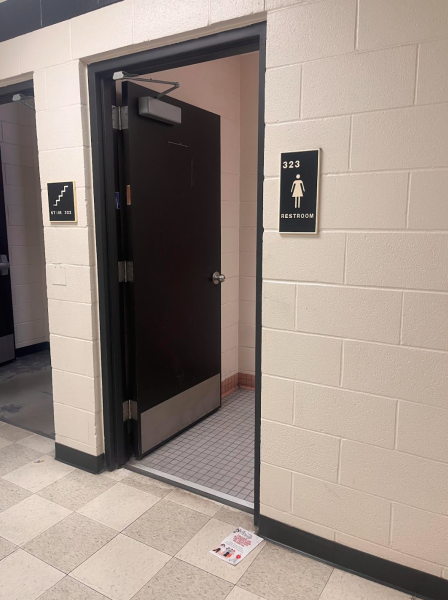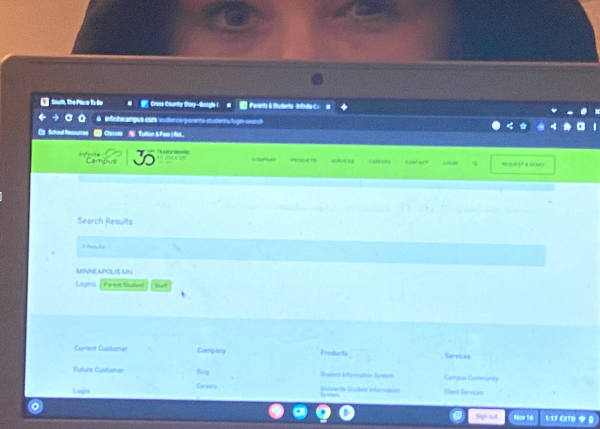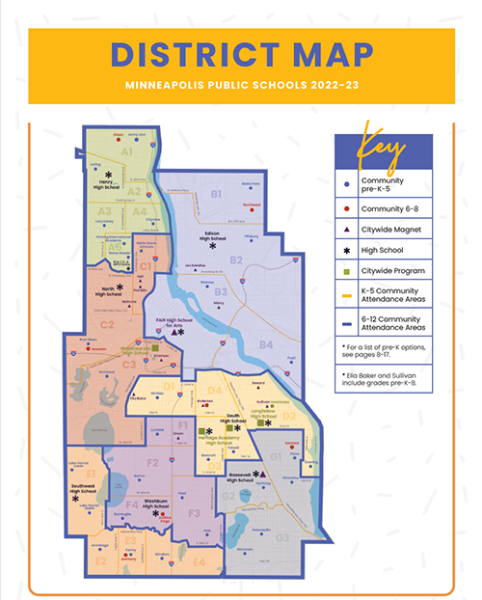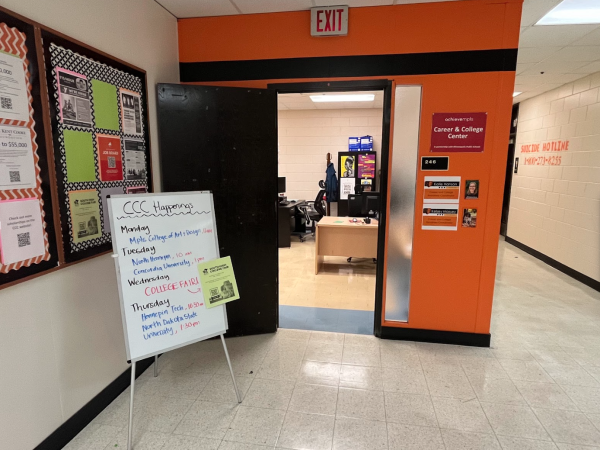With Ramadan coming up students ask for “understanding and a little help”
There are many restaurants around Minneapolis Muslims love to go to during Ramadan. Pictured above is Marhaba; a Mediterranean restaurant. During Ramadan they make a space outside for people to eat since the crowd can get really big. “I like going there during Ramadan because their food is really good and there really welcoming there,” explained Ahmed. Photo: Shadia Nurein
The holy month of Ramadan is approaching on May 26th and ending on June 25th. South students are preparing for three weeks of fasting while in school. While it will be difficult to fast while in school students will be finding their way around it, and are ready for Ramadan.
Ramadan is the ninth month of the Islamic calendar. It is considered the holy month and is when Muslims believe the Quran, the holy book in Islam, was revealed to prophet Muhammed (pbuh). Fasting for the whole month is one of the five pillars of Islam. Along with fasting they give zakat (charity), and pray more than they would during other months as well as read the Quran. By fasting from sunrise to sunset Muslims who have never experienced hunger or have never lived an underprivileged life experience the life that the less fortunate experience.
For some Muslim students it will be hard focusing on class work. “You’re basically gonna be focusing on what your gonna eat later,” explained sophomore Amira Abukar. Students may be very tired due to the fact that they woke up for Suhūr, the meal eaten at sunrise. “We do it early in the morning where we eat as much as we can so then later in the afternoon we won’t be as hungry,” explained sophomore Maymuna Abdulkadir.“It’s gonna be hard to align myself to wake up at three o’clock in the morning to eat,” said Junior Marian Hassan.
Turning in class work also might be a struggle for some students. “I know it’s gonna affect my school work the only thing I’m gonna be thinking about is Afur,” explained Abdulkadir. Afur is the meal eaten at sunset after a day of fasting. During the summer students don’t have to see people eating in the cafeteria so another struggle will be being surrounded by people who are eating. “Lunch time everyone’s eating and we wont be,” explained freshman Riyan Ahmed, and instead of having to be in the lunchroom “Anybody that’s fasting that does not want to be in the lunchroom cause they smell food shouldn’t have to be in the lunchroom and that’s why last year I had the outside open the whole time if your fasting go outside and lay on the grass.” explained Principle Ray Aponte.
There are many restaurants around Minneapolis that students love to eat at during Ramadan. One of them is Quraxlow which is a Somali restaurant. “It’s a nice place for breaking fast because it has a place to pray as well as good food. I love their Sambusa and their food since it’s real Somali food,” explained Hassan. Marhaba is also a restaurant that many Muslims eat at. It has a large selection of Mediterranean foods. They create a place to eat outside during Ramadan since the inside gets filled fast. “I like going there during Ramadan because their food is really good and their really welcoming there,” explained Ahmed.
Although fasting and focusing on school will be hard for some, students have different methods to help them. “Just eat big,” explained Junior Haroon Al-Hajiby. When finishing school work some students said that waiting until they eat and get their energy back to do their homework will be best for them. “Doing my homework after I eat and prayer [is easier],” explained Hassan.
Aponte, along with other staff members are thinking about fasting alongside the Muslim students who are fasting. “I know that several of our students will be fasting coming on Ramadan, and I think in order to understand the commitment and what it feels like I was talking to a few other people here and we might try [fasting]. It’s a big commitment and that something that I’m thinking about doing.” Aponte also feels teachers shouldn’t have food in their class when they know some of the students in there are fasting.“I think teachers that have food in the room during Ramadan should remove the food everybody should be sensitive.” Mohamed Abdulle explains how he knows how hard it can be on the students and that “if the can’t do it it’s okay.” “I’ll just encourage them all I can do is encourage them give them positive words,” explained Abdulle.
All Muslim students need from their teachers is understanding and the extra help if necessary to make sure that they are doing all they can so a student does not fall behind. “Understand that we might not be our best during class and just supporting and saying ‘Oh, even if you do a little bit it’s still your best,” said Abukar. “[Teachers should] be there as a helping hand and not be as difficult,” explained junior Mohamed Salad.
While it will be hard for some students, they are still looking forward to it and when asked if they were excited for Ramadan they all happily said yes. “I just love Ramadan and the good things that come with it like earning Ajar [spiritual rewards], and I can’t wait for Eid,” explained Ahmed.


